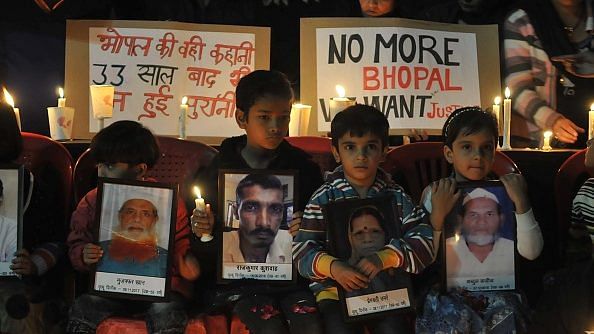Documents accessed by ThePrint show how the Indian government and Union Carbide played blame game on the Bhopal gas tragedy while the victims still await justice.
The Bhopal gas tragedy is one of the darkest smears in our past. Thousands of people died due to exposure to the methyl isocyanate (MIC), the deadly gas that leaked from the Union Carbide factory on the night of 2 December, 1984.
The lingering effects of the gas pushed the death toll to 20,000 as of 2009, according to ICMR data.
The Rajiv Gandhi government was heavily criticised for not acting with the necessary urgency. Warren Anderson, the then Union Carbide chairman, was arrested when he landed in India and then mysteriously allowed to leave the country.
Later, Union Carbide offered various settlements to pay compensation to those who had been affected, even though the government has filed charges against the multinational company.
In this letter, dated 31 May 1988, J.R.D. Tata writes to Rajiv Gandhi three-and-a-half years after the tragedy, telling him that Dr Henry Kissinger would urge him to accept Union Carbide’s terms for a settlement.
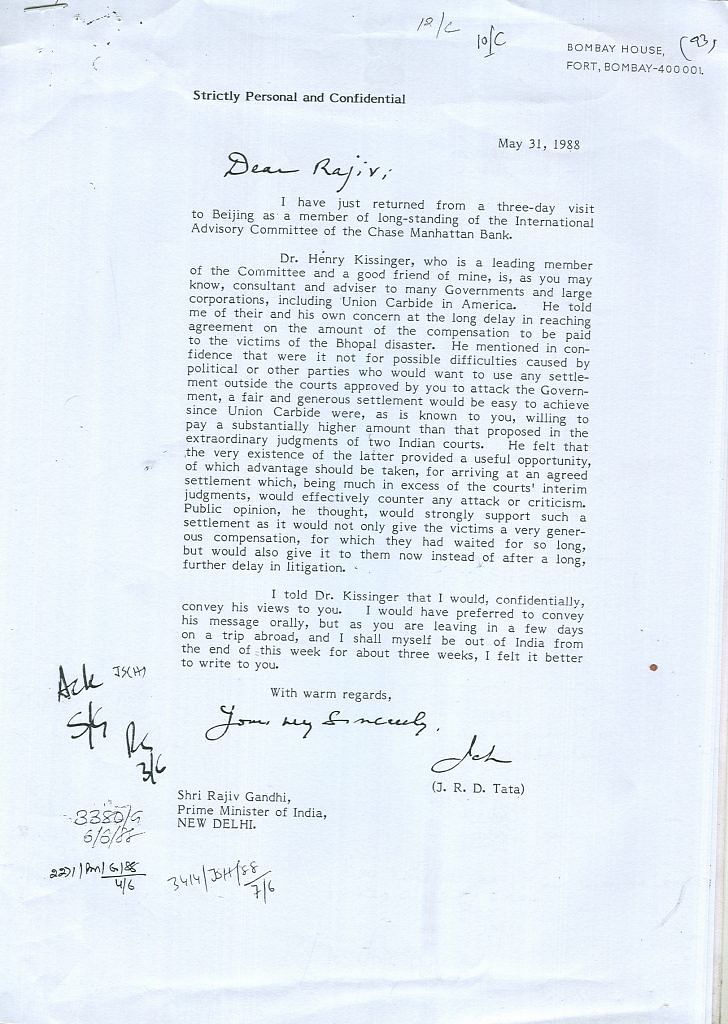
Rajiv Gandhi’s response, a few weeks later, indicates that he will consider Kissinger’s advice.
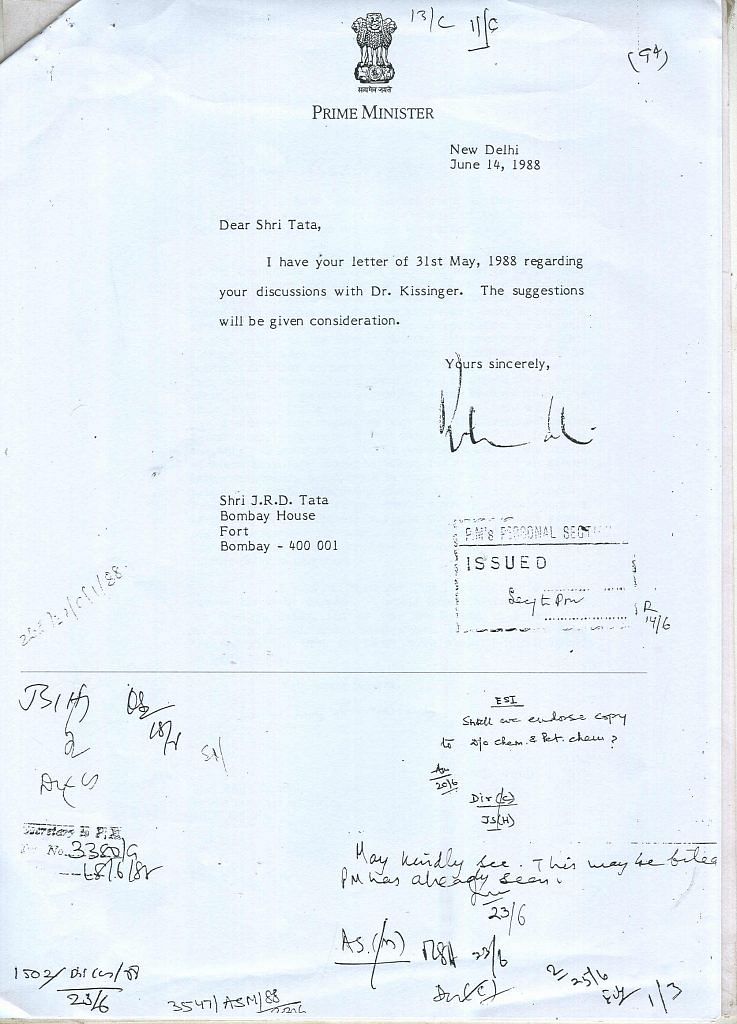
Early attempts to settle
A document marked “Top Secret” shows that Union Carbide was proposing a settlement within three months of the disaster. It shows that the Ministry of Chemicals and Fertilisers had met with Rolf Towe, the vice-president of Union Carbide, and together had drawn up different categories for compensation. Union Carbide offered a payment of Rs 1 lakh for each death, and six years later this was the amount the government paid the Bhopal victims. Another shocking category is that of “temporary injury” — unbelievable because nobody can be temporarily injured because of a lethal gas. 94% of victims with permanent injuries were assigned to this category, and paid the minimum amount of Rs 25,000.
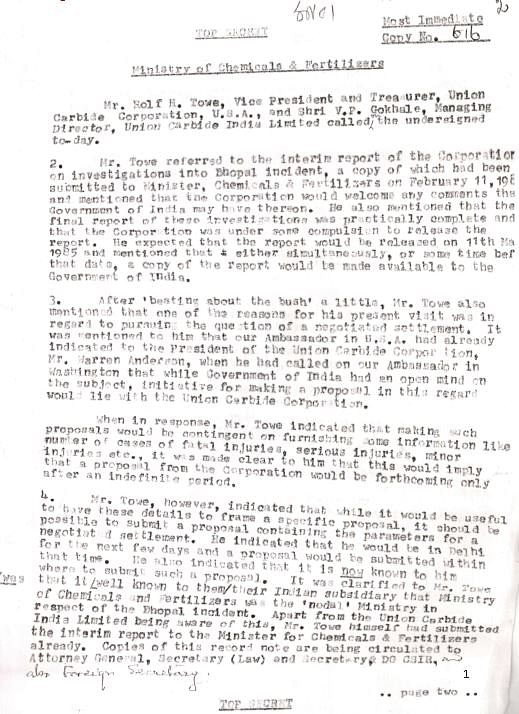
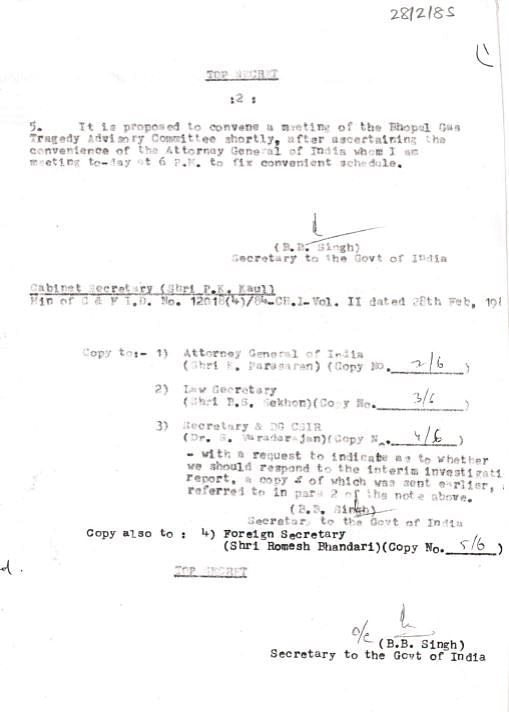
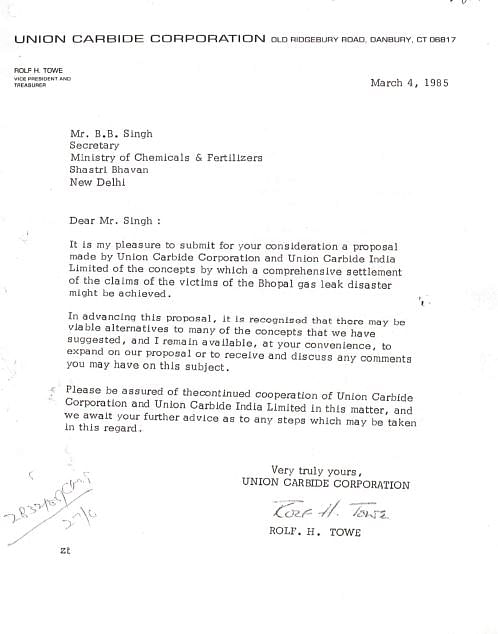
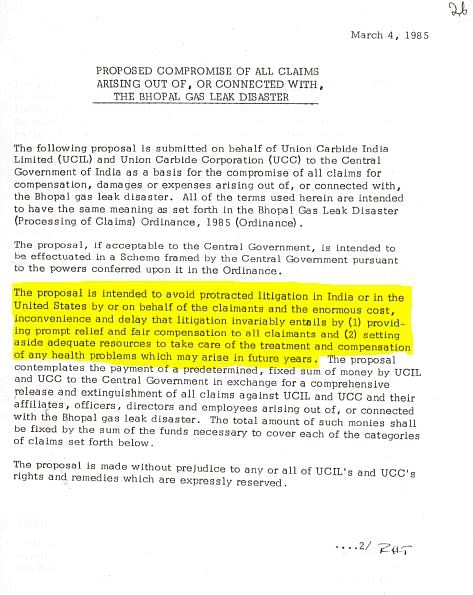
The highlighted portion shows the intentions behind offering this settlement so early on.
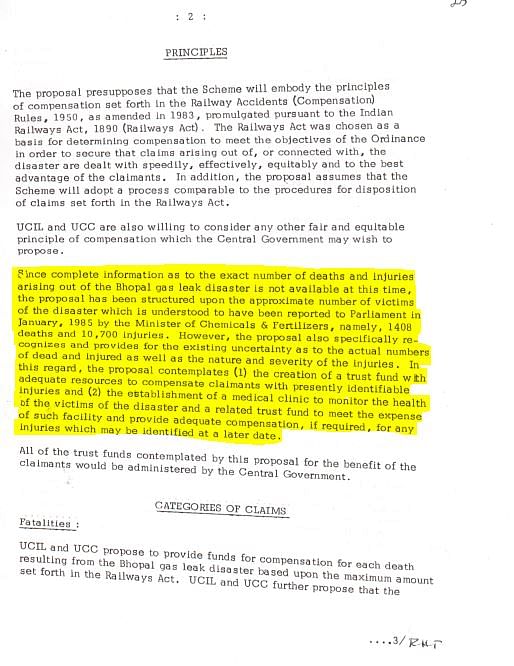
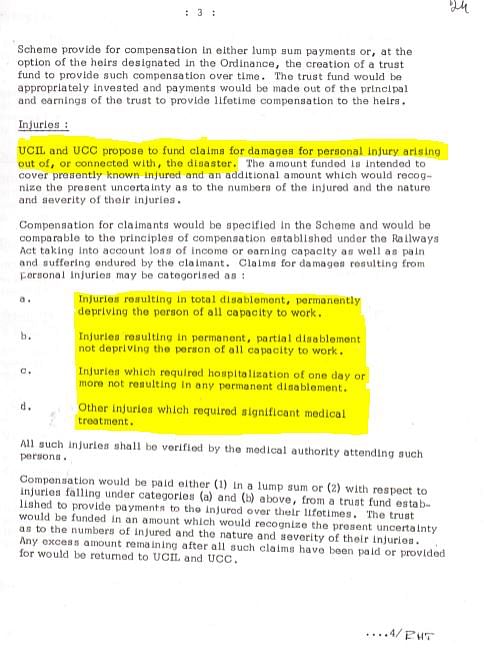
These were the four categories drawn up, besides that of fatality.
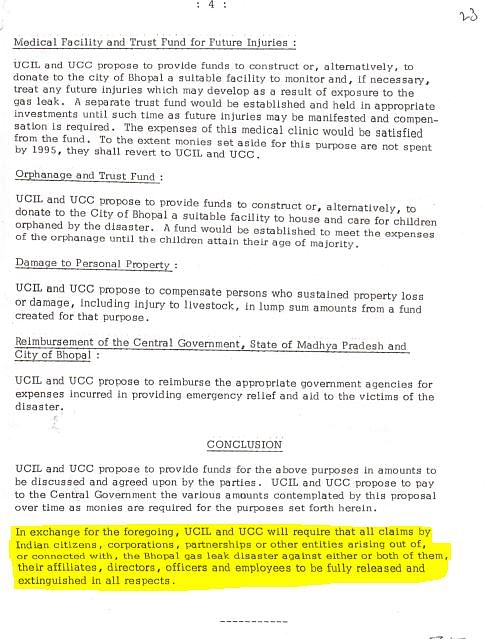
The clincher to the settlement is that all claims against any of the perpetrators or those associated with Union Carbide (both UGIL, which was the Indian branch and UGC, the global parent company) would be put away.
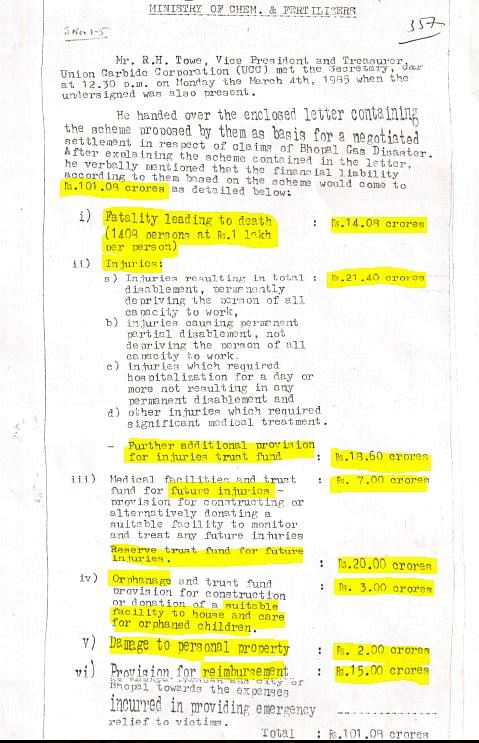
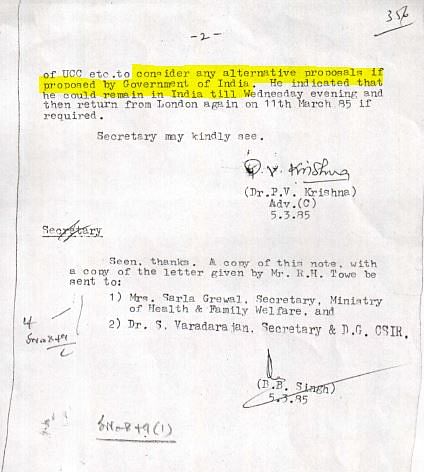
These figures are the total amount Union Carbide was willing to spend in terms of compensation: a total budget of Rs. 101.08 crore.
A fair warning
The gas leak is made even more poignant because a safety and health report from September 1984, just a few months before that fateful night, flags the possibility of the leak.
The MIC leaked because it came in contact with water, leading to a reaction that triggered it.
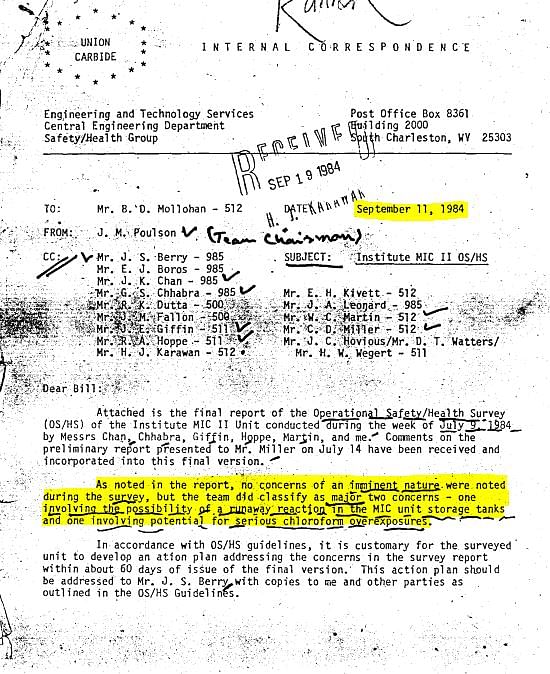
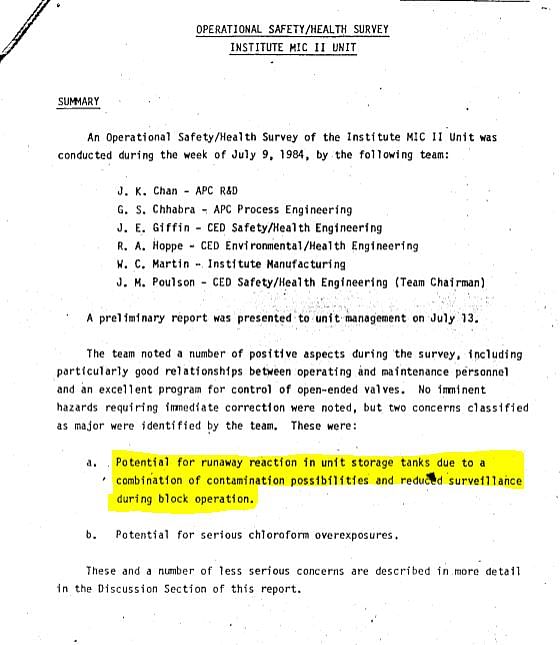
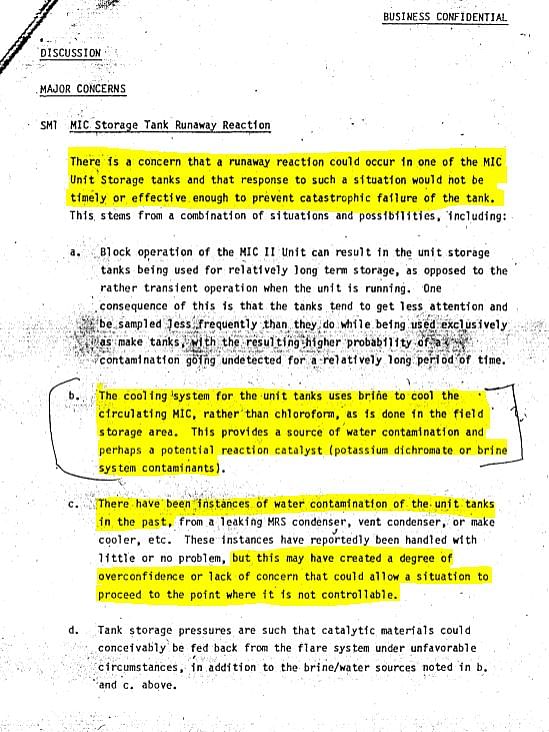
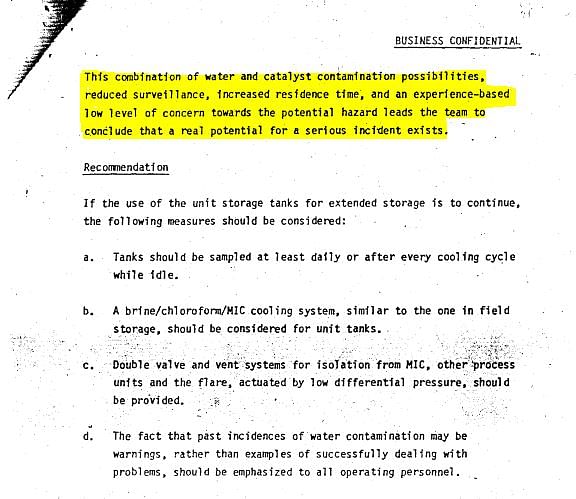
While Union Carbide maintains that the leak was an act of sabotage and the water was deliberately poured into the tank containing MIC, the government and activists both contend that the leak happened because of negligence and callousness.
Whom to blame?
In the years to come, Union Carbide has minced no words in condemning the government of India for not acting appropriately and for rejecting any help that the corporation was offering. The CIA, in a declassified report dated January 1985, also paints the Indian government in bad light, calling them ineffectual.
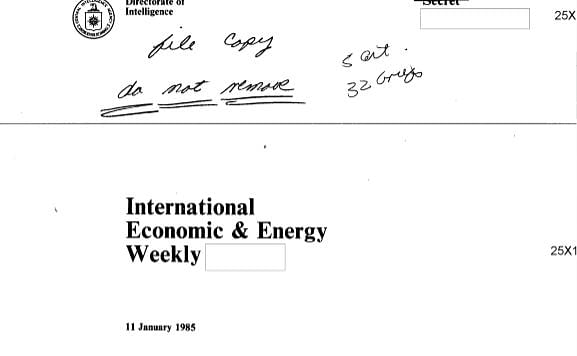
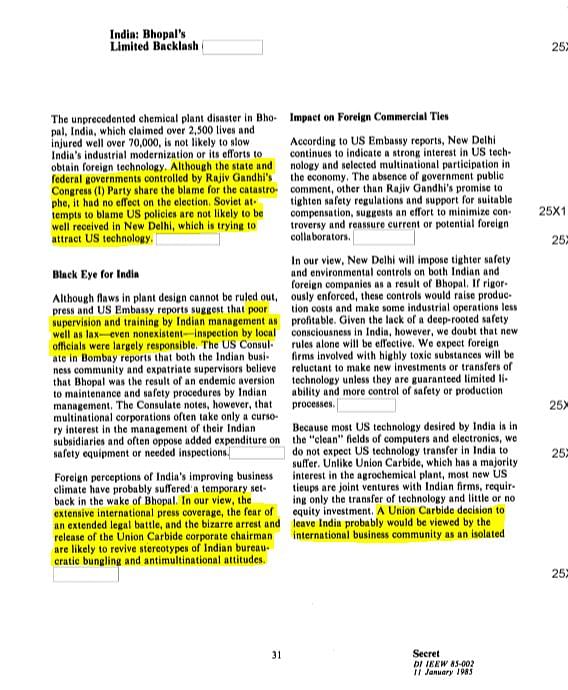
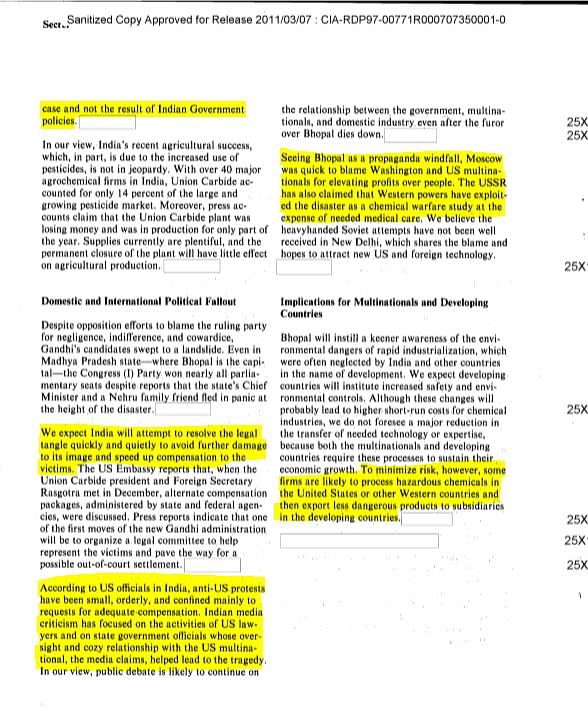
The document says that the US Embassy reports “poor supervision and training by Indian management” and “lax — even nonexistent— inspection by local officials”, as the cause for the leak, which is clearly incorrect.
It also notes that the “bizarre arrest and release” of Warren Anderson is “likely to revive stereotypes of Indian bureaucratic bungling and anti-multinational attitudes”.
A global opportunity
The tragedy also attracted a lot of global attention, with a swarm of media-persons and lawyers descending into Bhopal to offer their services to those affected. The celebrity lawyer, Melvin Belli, was also one of them, and is remembered for famously saying “…but these people in India are nobodies. Some poor little b— living in a railroad shack goes home to find his wife and child dead. Now Union Carbide have the effrontery to offer a f—orphanage and a million dollars. It is a monumental goof.”
People with “expertise” in dealing with occupational injuries, health hazards, and disaster management also offered their services to Rajiv Gandhi. Two of them (one of them having worked for Exxon) copied their letters of help to Warren Anderson, begging the question that Union Carbide had asked them to do this.
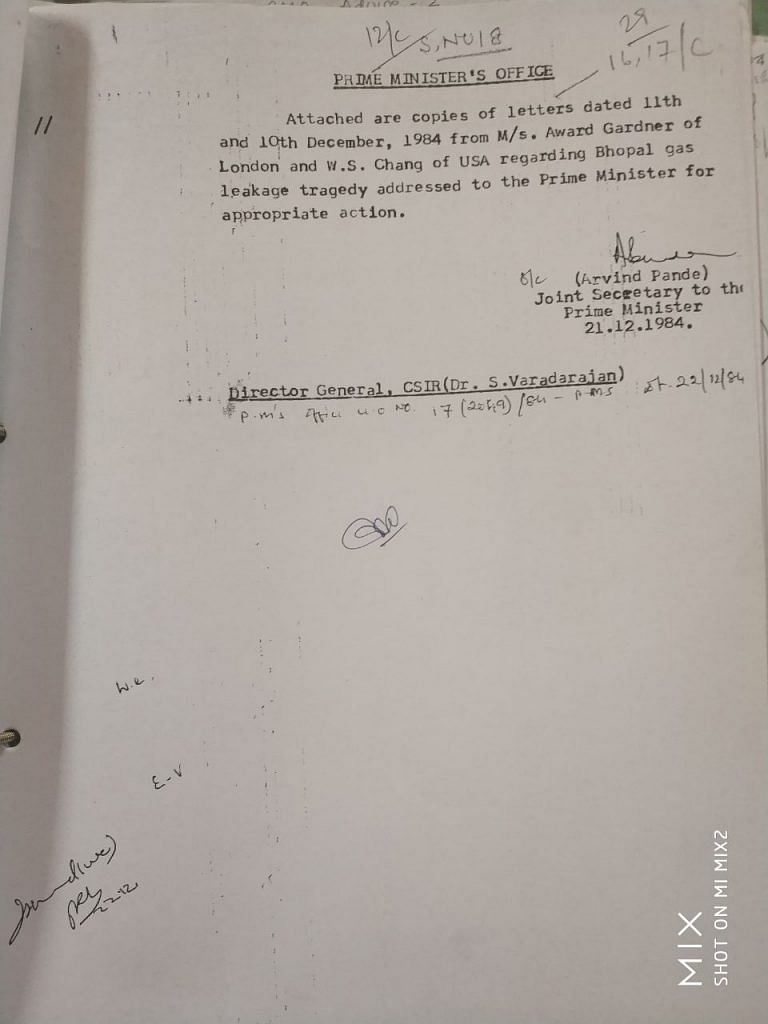
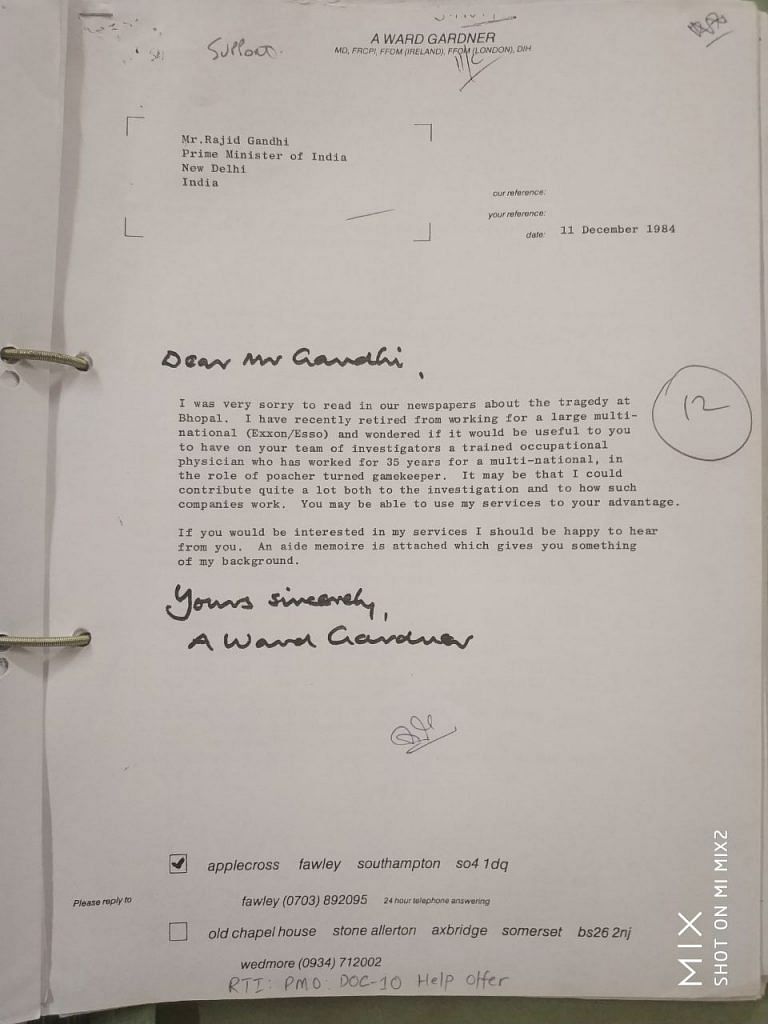
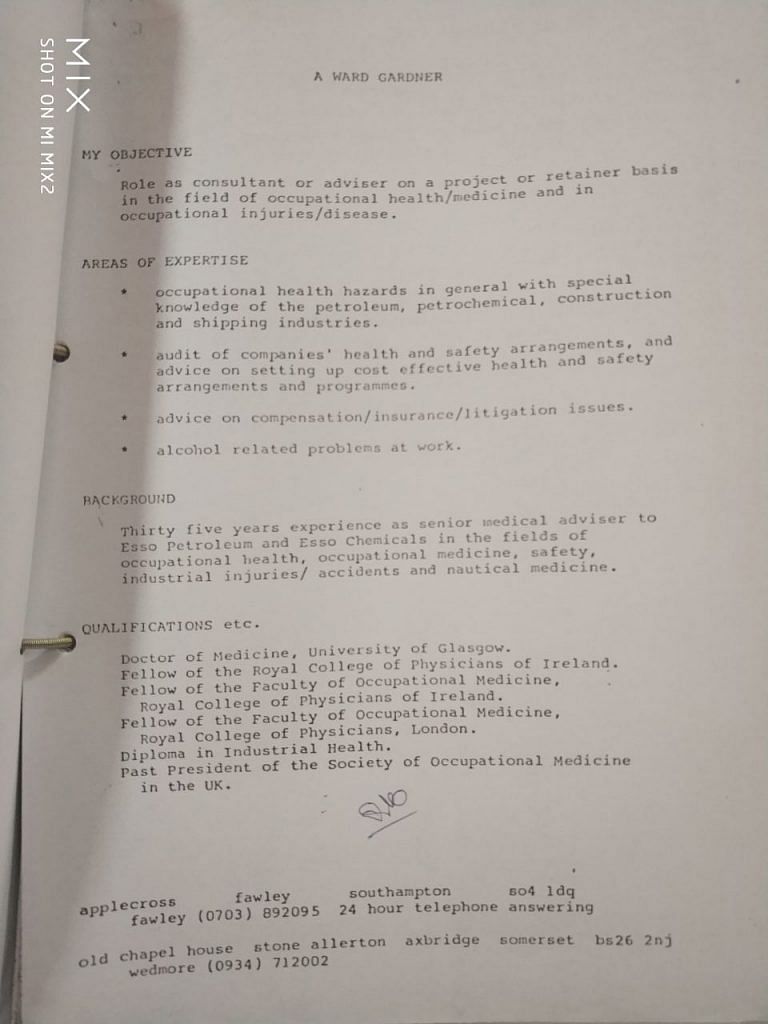
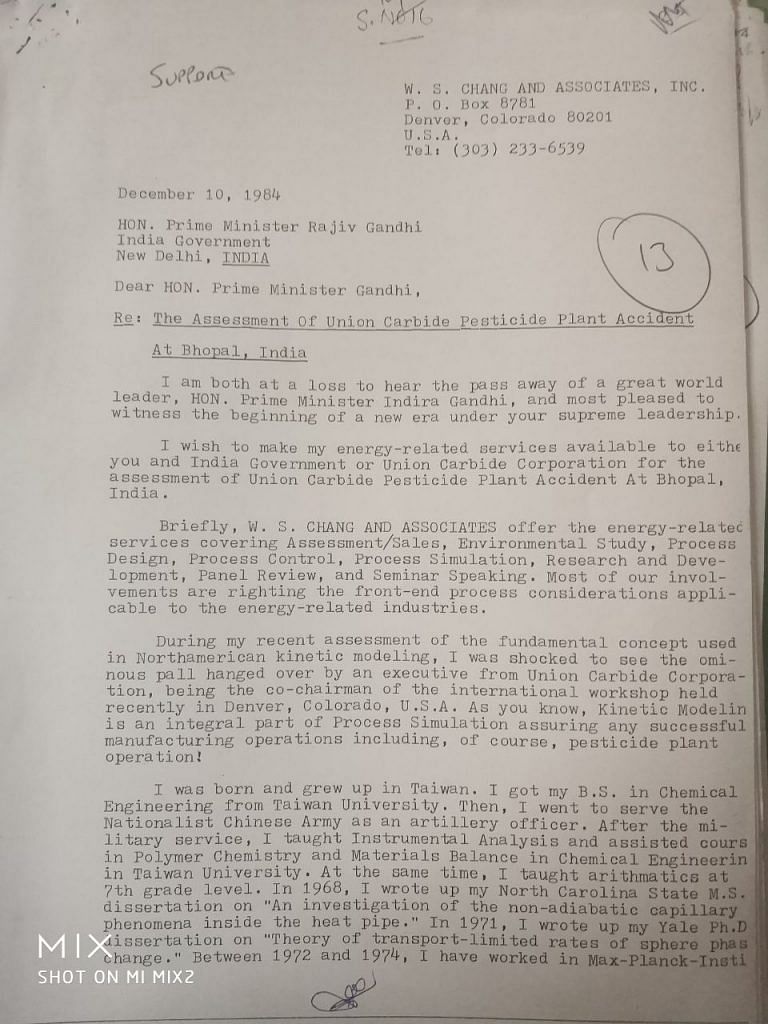
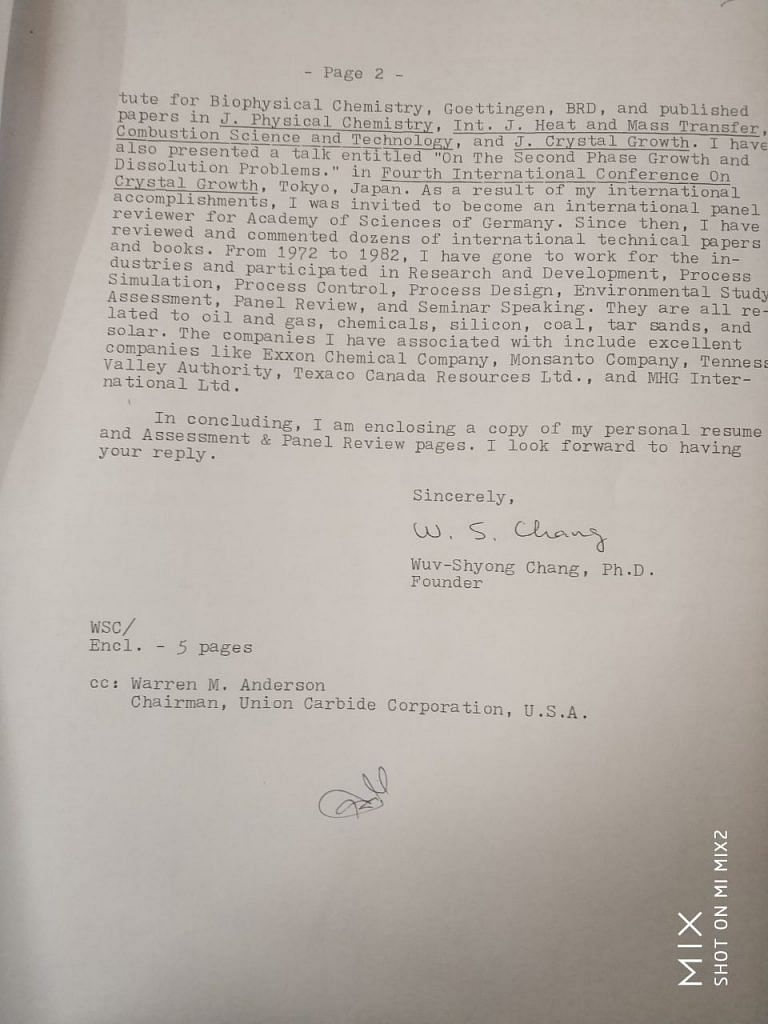
The fight for justice—in whatever form— is still ongoing, as generations of victims continue to deal with the effects of the tragedy.
Some documents were obtained from RTIs, provided by Rachna Dhingra, the Bhopal Group for Information Action.


